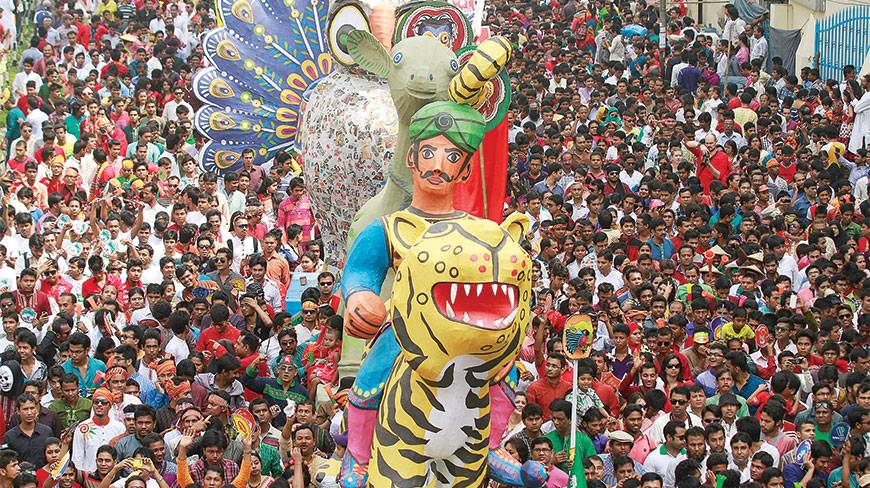
It was our undying commitment to secular values that led to the nation’s birth
Our nation has a long history of tolerance and diversity.
That door single-handedly represents the heart and soul of what our identity is. We are a region that draws inspiration from a variety of faiths and we are at our strongest when we are united.
History proves this assertion. Undivided Bengal was the greatest and the last conquest of the British East India Company. It was one of the pivotal hubs of dissent against imperial rule, being a space for multi-religious cultural protest as well as the oft-overlooked Tanka tribal movements.
The crown countered this unity with partition in 1905 only to revoke it six years later. Although religious divisions shaped the destiny of the sub-continent in subsequent decades, the confluence of faiths and cultures did not diminish, ultimately leading to our independence in 1971.
Lest we ever forget, it was our undying commitment to secular culture that underlined the Language Movement in order to protect our right to a derivative of Sanskrit and not one of Arabic. And it was that same commitment that flew in the face of the rhetoric of an Islamic nation, allowing us to gain our independence in 1971.
Lest we ever forget, it was our undying commitment to secular culture that underlined the Language Movement in order to protect our right to a derivative of Sanskrit and not one of Arabic. And it was that same commitment that flew in the face of the rhetoric of an Islamic nation, allowing us to gain our independence in 1971.
Secularism has never been about a rejection of religion, at least, not in South Asia. Rather, it is a promise to respect and protect all faiths (and individuals of no denomination), while favouring none.
All one has to do is look at the writings of Rabindranath Tagore’s essays on nationalism to understand that this is not an idealistic observation but a fact. Mapping the history of nationalist movements in Asia in comparison to Europe, Tagore notes how identities in Europe, particularly during the time of the Peace of Westphalia and the creation of the nation state, relied heavily on religious denomination as an identifier. The Self was of similar faith; the Other being heathen.
South Asian nationalism, by contrast, had always been about transcending ethnic and religious differences by placing importance on cultural commonalities and unity. This was as much a strategic ploy as a magnanimous one.
After all, it would be much easier for Muslim dynasties like the Mughals to successfully rule Hindu areas, and for Hindu dynasties like the Mauryas to do the same with Muslim communities, if they undermined the notion of religion being a key aspect of identity and autonomy. Regardless of the motivations, it is safe to say that Bengali nationalism has a deep historic connection with secularism that we have since forgotten.
Critics and deniers of this legacy would have us forget the door in Ahsan Manzil. They would focus on the Islamic identity of our Bir Sreshto freedom fighters while ignoring the likes of Surjo Sen and Pritilota Waddedar. They would underline the religious affiliations of some of our icons like Nazrul and Jasimuddin, while conveniently forgetting those of Tagore and Modhushudon Dutta. They would have us ignore the fact that our capital is a tribute to the goddess Dhakeswari, that our new year celebrations are heavily influenced by Hindu, Buddhist, and even Sikh rituals, and that our weddings are a colourful explosion of various faiths.
The political compromises that have led to our country being defined as secular while the Supreme Court still retains Islam as a state religion do not reflect our historic commitment to being a tolerant nation. And the deafening silence and inaction in the face of blogger murders only serve to strip others of their voice.
The truth of the matter is, however, that our daily lives are a testament to our diversity and the strength we derive from it. Our history is in danger and we must do our utmost to protect it before it is too late.
(Ibtisam Ahmed is a Doctoral Research Student at the School of Politics and IR in the University of Nottingham).
Republished with permission from Dhaka Tribune.